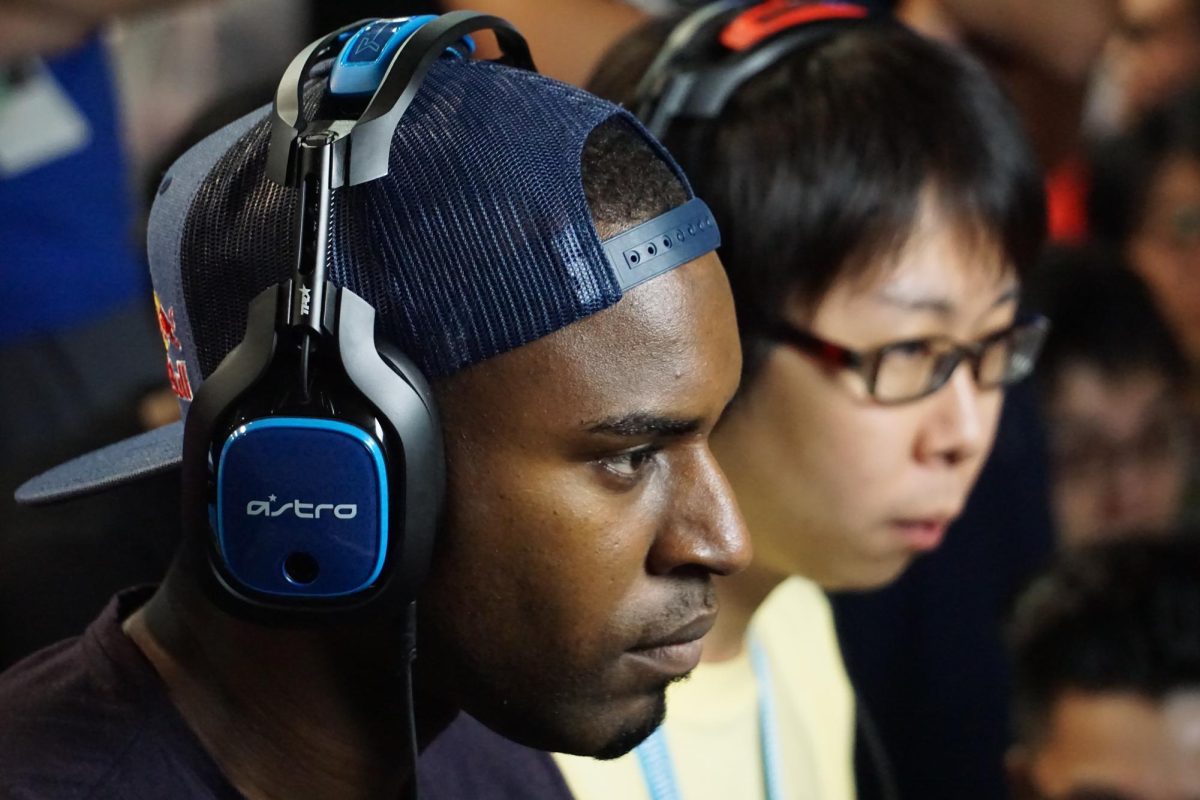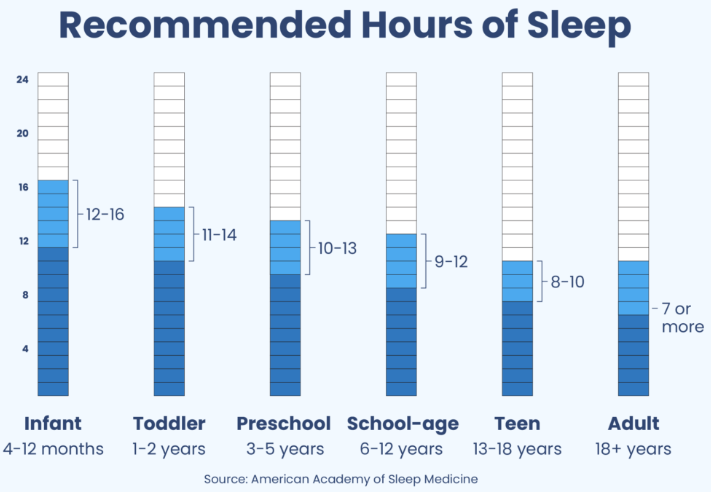As we begin a New Year, a New Year’s resolution we should all have is to get more sleep every night then we already do at night. On average, young adults are urged to get more than seven hours of sleep a night, stating that any less than that can lead to mental and physical stressors daily. Adults are urged to get at least 7 hours of sleep every night, explaining that any less could lead to the same regular stress that were found in young adults. Being able to reduce stress day to day can help reduce any stress induced conditions like heart disease, high blood pressure, and depression that are extremely common in those who are constantly stressed in their day to day life.
As young adults are supposed to get more than 7 hours of sleep a night, adults are pushed to get at least 7 hours of sleep every night. Only 31% of people are truthfully getting the proper hours of sleep every night to promote healthy sleeping and healthy habits which was found in a study done by Technology Network. The average person spends roughly 5 hours on their phone daily, teenagers alone spending upwards towards 7 hours and 30 minutes on devices daily. Scrolling on social media, watching reels, watching movies, or just watching YouTube videos. All taking away from valuable time that could be used to be reaching the healthy amount of sleep that the body should be getting each night.
“It’s so hard to find enough time in the day to accomplish everything that needs to be done,” revealed a high school student at Damascus, who only averages 6 hours of sleep a night on a day to day basis. Who also believes that they have struggles focusing in class and being able to get up in the morning feeling fully energized in the morning.
Although finding time in the day to accomplish everything that is necessary can truthfully be hard to do, it’s helpful to notice your own habits and patterns so you can help yourself. Planning out your day can help you keep track of time and avoid procrastination and wasting time altogether. Having a schedule in your room or even on your phone for each month and writing out important dates and what you need to complete when could help to push to healthy time management and less stress from day to day. Instead of not knowing what you need to have done, or what plans you made for what time, you would be able to check quickly on your phone or at the beginning of your day to plan ahead.
In the United States alone, it is estimated that 1 out of 3 people do not get enough sleep nightly on a regular basis. Causing 67% of the population to be getting insufficient sleep to prepare for the next day. Preparing for the next day by getting enough sleep is the most important step of the day. Not getting enough sleep can cause you to be energized for the day ahead of you. Not enough sleep drains your mental abilities and puts your physical health at risk. Insignificant sleep can lead to physiological changes like anxiety and depression, which with enough time can cause more serious conditions like paranoia, mood changes, trouble thinking and concentration, but even memory issues. Lack of sleep also causes a change in your physical health as well, weakened immunity is extremely common in those who lack sleep. High blood pressure, risk of heart disease, drowsiness, and poor balance throughout the body can also follow poor sleeping habits.
“I’m trying to get more sleep but it’s so hard to make time to sleep.” – An 11th grade high school student at Damascus who also averages only 6 hours of sleep every night due to homework, AP courses, sports and other extracurricular activities outside of school.
Limiting distractions when it comes to bedtime is extremely important in the winding down process. Turning down your phone, muting notifications, and turning bedtime on apps like Instagram and TikTok can help to promote less distractions and healthier sleeping patterns nightly. Instead of getting hooked on less important apps that are known for infinite scrolls, you could be resting your body and mind to help yourself reach your full sleep at night. To help find out if you are getting the right amount of rest for your own health, track your own personal habits and sleeping times and compare that to the recommended amount of sleep. Recognize what patterns need to be changed to make your sleeping patterns more healthy for your mind and body.






















